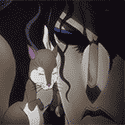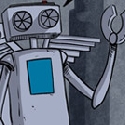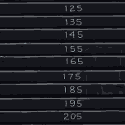|
babydonthurtme posted:You have a point re how beneficial criticism is, but... so what? Does everything have to be perfect or improved to be enjoyed? There's tons of works that I can see are written well and have neat settings etc but are just not for me for whatever reason. There's trash I don't miss an update of because it hits the right buttons for me. Did I ever say its specific to web serials? There are plenty of professional writers in all sorts of media that could improve a lot. In fact, I think its the exact opposite situation, serial writing is not some special sort of writing where the standards should be different. Serialized writing also isn't some new phenomenon. Famous and well respected writers of works considered classics did a lot of a serialized writing. Charles Dickens, Mark Twain, Alexandre Dumas, and H.P. Lovecraft are just a few examples. Like sure you can write stuff that satisfies readers, but are also disposable works that I don't think even the authors have particular pride for. Penny dreadfuls, and airport novels are example of such works. There isn't anything wrong with enjoying those type of novels, but they could be so much better. Especially when there are some neat ideas in them, but the writing executes them poorly. They also tend to have a short lifespan and will lose their appeal very quickly. Its ridiculous to get upset when someone points out there is room for improvement. Especially when there are common pitfalls that are trending among writers.
|
|
|
|

|
| # ? Jun 2, 2024 17:11 |
|
IShallRiseAgain posted:Did I ever say its specific to web serials? There are plenty of professional writers in all sorts of media that could improve a lot. In fact, I think its the exact opposite situation, serial writing is not some special sort of writing where the standards should be different. Serialized writing also isn't some new phenomenon. Famous and well respected writers of works considered classics did a lot of a serialized writing. Charles Dickens, Mark Twain, Alexandre Dumas, and H.P. Lovecraft are just a few examples. The fate of the vast majority of authors, even good ones is obscurity, usually never becoming famous. Even famous authors will often be forgotten within decades. This is something I've accepted; I don't think my works will likely reach a high amount of fame or immortality. There just are more writers than can linger in long term cultural memory. I'm just saying the percentage of writers who can be Shakespeare or Mark Twain or whatever name you want to name is tiny. That doesn't mean that you can't try to write prose or scenes that will linger in readers' memories mind or try to improve your skills.
|
|
|
|
i think you have to separate criticisms like "spelling words correctly" from criticisms like "tight plotting". the former is obviously a requirement for a story to be any good if the reader's standards are reasonable, but tight plotting isn't what everyone wants. a fast paced story isn't inherently better than a slower one, a story where every plot point is directly connected to the main thrust of the story isn't inherently better than one where sometimes things happen and not all of those things circle back around to being relevant to the main plot. if you conflate the two then of course you're going to be frustrated by a discussion like this. nobody is clamoring for stories with persistent spelling errors, not even the people who read them anyway
|
|
|
|
|
stories are just too high effort and serious without typos
|
|
|
|
Jazerus posted:nobody is clamoring for stories with persistent spelling errors, oh yeah? explain Homestuck
|
|
|
|
John Lee posted:"Sure, maybe the AUTHOR likes it, and the READERS like it, but popular things aren't necessarily good please dont let this be the average royal road reader mindset
|
|
|
|
i dont think calling something bad ceases it to exist or anything. it's not gonna go up in smoke like that. it's kinda meaningless cuz of course writers gonna write what they wanna write but so what, does every opinion need to be prefaced with in my opinion, for me, to me, i feel if you know youre reading trash just live up being oscar
|
|
|
|
IShallRiseAgain posted:Serialized writing also isn't some new phenomenon. Famous and well respected writers of works considered classics did a lot of a serialized writing. Charles Dickens, Mark Twain, Alexandre Dumas, and H.P. Lovecraft are just a few examples. The financial realities and audience expectations are significantly different though. An early Dickens novel like Oliver Twist was published (monthly) at roughly 1.5k words per week over a couple of years. Super Supportive's RR word count for the first year is about 6x that rate, and that's a 'slow' author who incorporates (self?) editing in their process. And a high volume author of something like 'Return of the Runebound Professor' publishes 2k words every day while working on side projects. There's just not much incentive or time for newer authors to edit beyond grammar instead of writing more. If you want to be paid, KU pays per word and the RR/Patreon ecosystem is set up for 3-5 chapters a week. That's just... a lot of writing. It's not surprising that even if you know how to work on improving as a writer you don't have much time or energy to do so after writing that much.
|
|
|
|
Lots of web serials are bad, and some authors need a tougher skin. I have seen some trashy stories where they get a single bad review and they post a giant meltdown at the beginning of a chapter about how dare someone gave them one star. It is rather pathetic. Sometimes people don't like what you provide, and that is life. Ignore it or work harder.
|
|
|
|
Peachfart posted:Ignore it and work harder.
|
|
|
|
cyrn posted:The financial realities and audience expectations are significantly different though. An early Dickens novel like Oliver Twist was published (monthly) at roughly 1.5k words per week over a couple of years. Super Supportive's RR word count for the first year is about 6x that rate, and that's a 'slow' author who incorporates (self?) editing in their process. And a high volume author of something like 'Return of the Runebound Professor' publishes 2k words every day while working on side projects. There's just not much incentive or time for newer authors to edit beyond grammar instead of writing more. Yeah this. Also I don't know how many editors are willing to take on this much workload just for a single story. And if you're purely a hobbyist writer (not trying to make money from it) you likely don't have the money to pay an editor anyways. I certainly don't.
|
|
|
|
https://www.youtube.com/watch?v=4geaxYRgx2c
|
|
|
|
|
Jazerus posted:i think you have to separate criticisms like "spelling words correctly" from criticisms like "tight plotting". the former is obviously a requirement for a story to be any good if the reader's standards are reasonable, but tight plotting isn't what everyone wants. a fast paced story isn't inherently better than a slower one, a story where every plot point is directly connected to the main thrust of the story isn't inherently better than one where sometimes things happen and not all of those things circle back around to being relevant to the main plot. if you conflate the two then of course you're going to be frustrated by a discussion like this. nobody is clamoring for stories with persistent spelling errors, not even the people who read them anyway Good writing isn't just necessarily tight plotting and proper grammar and spelling. You can have a work that is well-written, while the plotting is meandering and slice-of-life. Word intentionality, over and under-use of words, and structuring your sentences to better evoke emotion all are elements of good writing. Grammar and spelling are a baseline of competency, and shouldn't be indicative of the relative skill of the writer. This is true whether you're writing an essay, blog or novel. It is universal across the craft of writing. Plotting is a skill of storytelling, which is intermixed and is supported by an author's skill with writing, but they are two separate skills and it is important to distinguish that when criticizing literature.
|
|
|
|
cyrn posted:The financial realities and audience expectations are significantly different though. An early Dickens novel like Oliver Twist was published (monthly) at roughly 1.5k words per week over a couple of years. Super Supportive's RR word count for the first year is about 6x that rate, and that's a 'slow' author who incorporates (self?) editing in their process. And a high volume author of something like 'Return of the Runebound Professor' publishes 2k words every day while working on side projects. There's just not much incentive or time for newer authors to edit beyond grammar instead of writing more. For example, I find abandoned sub-plots to be frustrating and an example of bad writing even if I completely understand how the writer can write themselves into a corner, realize that its not working, or realize they want to focus on different aspects of the story. The fact that the writer did what was necessary doesn't change the original mistake and the work would be better off without having it in the first place. To be clear, I don't expect web serials to be super tightly edited works. I just think plot lines that get a significant amount of time invested in them should have a payoff and not just randomly meander into non-existence. Little side tangents can be neat even if it doesn't serve the greater narrative. I read and enjoy a lot of slop, and I even understand the practical realities of why the writing is the way that it is. That doesn't mean I have to pretend its inherent to the format and that it can't be better.
|
|
|
|
I think intentionality is the important thing here. Are people writing long, meandering serials with a dozen side plots because they are making a deliberate choice to and have worked out how theyíre making it happen, or are they doing it because thatís just the only way they know how to write?
|
|
|
|
IShallRiseAgain posted:For example, I find abandoned sub-plots to be frustrating and an example of bad writing even if I completely understand how the writer can write themselves into a corner, realize that its not working, or realize they want to focus on different aspects of the story. The fact that the writer did what was necessary doesn't change the original mistake and the work would be better off without having it in the first place. To be clear, I don't expect web serials to be super tightly edited works. I just think plot lines that get a significant amount of time invested in them should have a payoff and not just randomly meander into non-existence. Little side tangents can be neat even if it doesn't serve the greater narrative.
|
|
|
|
cumpantry posted:how do you feel about authors revising abandoned plotlines out later down the road? so you got into a book and the mc's mom owns a candy store but it never comes up again so the mom's rewritten later to be away on business. you remember reading it differently before but thats archive.org now. what do you think? The thing about a web serial is that there are basically two categories of readers: those who are up to date and reading serially, and those who are not and are going through the archive. Edit passes donít retroactively change the experience of a reader whoís already past those chapters, so the plotline still exists in the minds of those readers and was unceremoniously dropped. Web serials do not get second drafts. Once a chapter is out, itís out.
|
|
|
|
you could consider physical releases or moving to KU a second draft
|
|
|
|
cumpantry posted:you could consider physical releases or moving to KU a second draft True, but to be pedantic, a rerelease like that is no longer a web serial. Itís a published novel, released to a new audience, and those absolutely get additional drafts and editing before release.
|
|
|
|
IShallRiseAgain posted:That's a bad argument. A lot of really lovely reality tv is popular. It doesn't mean its good, just that some people have really poo poo taste. There is also the whole continuing to consume a work just due to momentum even if it no longer has much appeal. There are kind of two separate things here. Things like "dropped subplots" are bad, but that isn't inherent to "a series being slow and drawn out." In the best case, the serial format allows for the telling of stories that wouldn't be reasonably viable in book form. Stuff like Forge of Destiny or Super Supportive that "follow most of a character's life" (after a certain point, anyway). There's nothing inherently better about a story that is arranged to be fully told within 300 pages vs stories like this. It's just a different sort of format. Good writing is still necessary in that context, regardless. The characters and setting still need to be well-written. But the way the story is consumed is fundamentally different from the way a book is consumed.
|
|
|
|
youve made this claim before but i really dont see what makes webnovel stories inherently different from book format in terms of what stories can be told. if the only difference is length id point out wheel of time as proof that you can tell an insufferably long story with glacial pacing in book form. even extremely long webnovels will usually divide themselves into relatively discrete arcs which isnt that different from series divided into books.
|
|
|
|
Stexils posted:youve made this claim before but i really dont see what makes webnovel stories inherently different from book format in terms of what stories can be told. if the only difference is length id point out wheel of time as proof that you can tell an insufferably long story with glacial pacing in book form. even extremely long webnovels will usually divide themselves into relatively discrete arcs which isnt that different from series divided into books. Books generally need some sort of self-contained story within the length of each one. I mean, I guess you could technically have a book without that, but I'm not aware of any. The nature of the business/product means that each book needs to stand reasonably well on its own, even if it's part of a series. Serials can choose to split themselves up like this, but they're also completely free to not do that. To use Super Supportive as an example (just because it's the one most clearly in my memory right now), if it were in the form of a series of books, the author would basically need to insert some sort of climax or change in circumstances sometime soon-ish. But as a serial, it can spend as long as it wants exploring current circumstances without needing to kick-off and resolve "a plot for the current book." This isn't better or worse than the alternative, but it is obviously different.
|
|
|
|
Crossroads of Twilight does exist and is sort of known for not beginning or ending a single story arc or having any sort of climax. Certainly not common, though.
|
|
|
|
Velius posted:For some reason Iím still reading Industrial Strength Magic despite the more or less total absence of character depth (itís cheap, updates often, and is reasonably interesting in setting?), and the Patreon is just full of comments about exponential growth curves of character strength and why isnít the MC even more powerful?! Ugh. My take is that ISM pretty much perfectly hits that 'junk food/comic book/saturday morning cartoon' kinda vibe. Like, the story pretty low stakes in terms of emotional investment, and that's fine? Also I keep being pleasantly surprised at the story. I did not expect things like healthy relationship dynamics to show up in the casual action comedy I'm reading. It's not my favourite story out there, but I find the chapters to be consistently entertaining and am always happy to read the next one.
|
|
|
|
Agreed. I also think Industrial Strength Magic has really only made the main character OP to the point of being a detriment in this last arc. And it feels like this is the last arc, so maybe that's fine.
|
|
|
|
Ytlaya posted:Books generally need some sort of self-contained story within the length of each one. I mean, I guess you could technically have a book without that, but I'm not aware of any. Trying to shake up this storytelling convention of a satisfyingly "whole and contained" story is done, occasionally. It's a classic of avant garde works, if such a thing is even possible. It generally results in works that few claim to enjoy, and fewer yet actually do, particularly when it's foisted upon them in a place of education. This has been a roundabout way of saying I got more out of Joyce's love letters than out of his novels, but I commend authors who actively question the conventions of their art form. (probably quite rare for the conventions of LITRPG, though). Sometimes you even get quite enjoyable stuff out of such attempts, like Atomik Azteks.
|
|
|
|
It's also useful to consider that book pacing isn't a product of the format, the format is a product of the pacing: three-act structure divided into 30-50 2500-3500 word chapters just so happens to be a really, really easy format to tell a story in. It's not the only format, and I'm not about to claim that serial pacing is uniformly bad, but I'm honestly not sure if I could name a single web serial in which it benefited from the lack of structure. Even in serials that have a lot of good points, it feels to me like that lack of structure often hamstrings the author. Super Supportive is a great example- the recent Lute chapters aren't bad, but it's a 30,000 word novella from a new character's POV that was unceremoniously dumped into the story at a highly engaging and interesting point in Alden's stuff. It's not bad, but a) 90% of what we learn in the Lute chapters could've been conveyed to Alden through fragments of conversation across a wider spread of chapters, and b) it absolutely kneecapped the pacing, to the point that when it jumps back to Alden's perspective the author is going to have to build up inertia from zero. I'm sensitive to this sort of thing being hard to predict when you're writing by the seat of your pants, but I also think that an awful lot of serials' issues with structure and pacing come from the author not having a strong understanding of either element.
|
|
|
|
Omi no Kami posted:It's also useful to consider that book pacing isn't a product of the format, the format is a product of the pacing: three-act structure divided into 30-50 2500-3500 word chapters just so happens to be a really, really easy format to tell a story in. It's not the only format, and I'm not about to claim that serial pacing is uniformly bad, but I'm honestly not sure if I could name a single web serial in which it benefited from the lack of structure. Are you reading on Royal Road? I'm very interested in hearing how people ultimately wind up feeling about the Lute chapters when they're done, because on RR they're being dropped in very rapid succession, while on Patreon they came out at the standard release cadence. I found it to be hugely disruptive and a big hit to my overall enjoyment when it came out over 3-4 weeks, and am curious to see how it lands when it only takes one.
|
|
|
|
blastron posted:Are you reading on Royal Road? I'm very interested in hearing how people ultimately wind up feeling about the Lute chapters when they're done, because on RR they're being dropped in very rapid succession, while on Patreon they came out at the standard release cadence. I found it to be hugely disruptive and a big hit to my overall enjoyment when it came out over 3-4 weeks, and am curious to see how it lands when it only takes one. Yeah, but I also don't think my opinions are particularly useful since I tend to be way more critical than a lot of readers. I can't help but look at the Lute and Boe stuff through an editorial lens, through which I feel both sets of chapters should've been cut entirely. Boe's stuff felt like an early-draft concept that didn't pan out- he and Jeremy worked well as Alden's friends and emotional anchors pre-superpowers, but his backstory, powers, and general schtick were so over-the-top edgy and sad that I couldn't take them seriously. (Spoilers for 109-113) Lute's chapters in part felt like a slightly more experienced take on the same concept: big sad lad who's sad and mad, feel bad for him please. Given that SS is a story about Alden I think the chapters are bloated, repetitive, and add very little. There are some interesting bits about Lute's character, but they could've been delivered much more effectively as 500-700 word conversations in Alden chapters. My biggest histrionic gripe about the Lute stuff is probably that I just don't care. I found him melodramatic and obnoxiously gloomy in Alden's POVs, but I thought he also worked in those- he was interesting as a more grounded member of the Velra family, and I found it easy to believe that Alden would hone in on him as the roommate in most need of a sympathetic ear and get to know him. But as the POV character, I don't dislike him but after almost 30,000 words I am completely uninterested. The guy got a raw deal, but he's also kind of a flaming dickbag, we didn't learn much (or anything?) about his family that we didn't already know, and the whole thing feels like it only exists because the author found the character more interesting than Alden. From what I recall, the key points covered in 109-113 were the Velra matriach is an asshat, the Velra are all awful, Lute's a sensitive music kid who would've been way happier in a performing arts school than Superhero High. And I dunno- did we really need tens of thousands of words to cover that?
|
|
|
|
Omi no Kami posted:It's also useful to consider that book pacing isn't a product of the format, the format is a product of the pacing: three-act structure divided into 30-50 2500-3500 word chapters just so happens to be a really, really easy format to tell a story in. It's not the only format, and I'm not about to claim that serial pacing is uniformly bad, but I'm honestly not sure if I could name a single web serial in which it benefited from the lack of structure. I agree with a lot of what you said, but I don't think this is true. The novel isn't a timeless and universal form; it's historically contingent. Were it otherwise, it'd be called the "oldel". The defining feature of the web serial, as a form, is that it is a serial format where writers can write as much as they want. (And, of course, that there's very little quality filter, which also comes from the free distribution the Internet provides.) This doesn't prohibit careful prose but it certainly nudges against it. I always think of the web serial as sort of like the "soap opera" of writing. Soap operas were, of course, serial television shows known for their extreme length and slow pace. Many were on daily. The consequences of this form were not exactly praised by critics, from what I understand (the soaps were before my time), but it did lead to a deep, comfortable engagement and understanding with the characters from the audience. Quantity does have a quality all its own.
|
|
|
|
"was"? Where is this "was" coming from? Buddy, I wish the soap opera "was". Those things are like elder gods, they're never going to loving die.
|
|
|
|
To be fair, serial stories are, uh, not exactly new. Wikipedia mentions a couple of the earliest printed serialized works coming from the 1600's. One of them, ArtamŤne ou le Grand Cyrus, is around 2 million words long spread out over 4 years, 1649-53, and that's only one of Madeleine de Scudťry's works, with two following series nearly tripling that amount over the next 10 years, plus more. For comparison, Wheel of Time is 4.4 million in 23 years, and The Wandering Inn is 12+ million in 8 years.
|
|
|
|
keyboards have become cheap; paper and ink optional. words
|
|
|
|
I mean, serials rose in popularity because, while still not cheap, periodical publications were becoming viable due to the printing press having 200 years of refinement (on top of 400 previous years of refinement from China's movable type printing machines) and the materials printed with and on becoming more accessible.
|
|
|
|
The other thing is that the serial, as a whole, does not have to be good. You don't consume it as a whole. You consume it piecemeal, as it releases. The quality of the storytelling in a book matters much more - but for a web serial where you don't read the entirety of the arc at once, it doesn't really matter, because you engage with it differently. I feel comfortable saying that the storytelling in most serials is quite bad but that's mostly irrelevant because the storytelling matters much less when you are consuming chapter by chapter vs an entire book.
|
|
|
|
See I almost feel like it's the other way around, for me at least, because it's easier to just keep reading a book when there's more chapters in front of you and it takes something reasonably egregious to get me to not finish even a book I'm not having a great time with. But when reading a chapter a week, it's very easy to be just like "I don't really care about this any more" or to pause reading for a year and then never pick it up again. Supsup is the only serial I've ever really stuck with once I exhausted the backlog and I read a LOT of fiction both web serials and published novels.
|
|
|
|
Yeah. I read lots of webserials, but like 95% of the time I read up to where it currently is, maybe follow along with updates for a month or two, then drop it and maybe come back in 6 months to year. Super Supportive is a rare exception there.
|
|
|
|
Yeah same. At the moment I have a lot on my list, but SupSup, Slumrat, and for some reason All the Skills are the only three I'm actively reading atm. The last one I think just because the chapters are so short.
|
|
|
|
|
nrook posted:I agree with a lot of what you said, but I don't think this is true. The novel isn't a timeless and universal form; it's historically contingent. Were it otherwise, it'd be called the "oldel". Yeah that's definitely true. The history of the modern novel is actually really fascinating. I think most people tend to point to the 18th century as the point when modern-ish novels started to supplant romantics- that's when reading in Europe began to shift from an upper crust indulgence to a leisure activity that commoners regularly engaged in. But even then there was a ton of iteration, and my impression is that it wasn't until the advent of genre fiction and Albatross Books pushing paperbacks in WWII that standardization really took hold. And a lot of that was due to commercial pressures, not creative ones... but a lot of those commercial pressures feed back into the creativity. Like, a lot of modern authors target 60-90k word manuscripts because that's what publishers like. Publishers like them for a number of reasons (printing costs, shelf & shipping economy), but a big one is that there's a sweet spot at around 300-600 pages where a lot of people tend to read a lot of the story, and as you stretch outside of that your engagement drops. There are exceptions, of course- before Harry Potter, children's publishers generally refused to market something over 100-150 pages. But publishers generally push what they think people will buy, and I really think that some of that clockwork speaks to a cognitive sweet spot for how people like to consume their stories.
|
|
|
|

|
| # ? Jun 2, 2024 17:11 |
|
My top three is supsup, player manager and trailer trash. But it all updates so slowly so atm I'm also reading elder cultivator which is not that great but not poo poo either.
|
|
|














 "
" ), but, uh, I bet they don't feel that way.
), but, uh, I bet they don't feel that way. 























